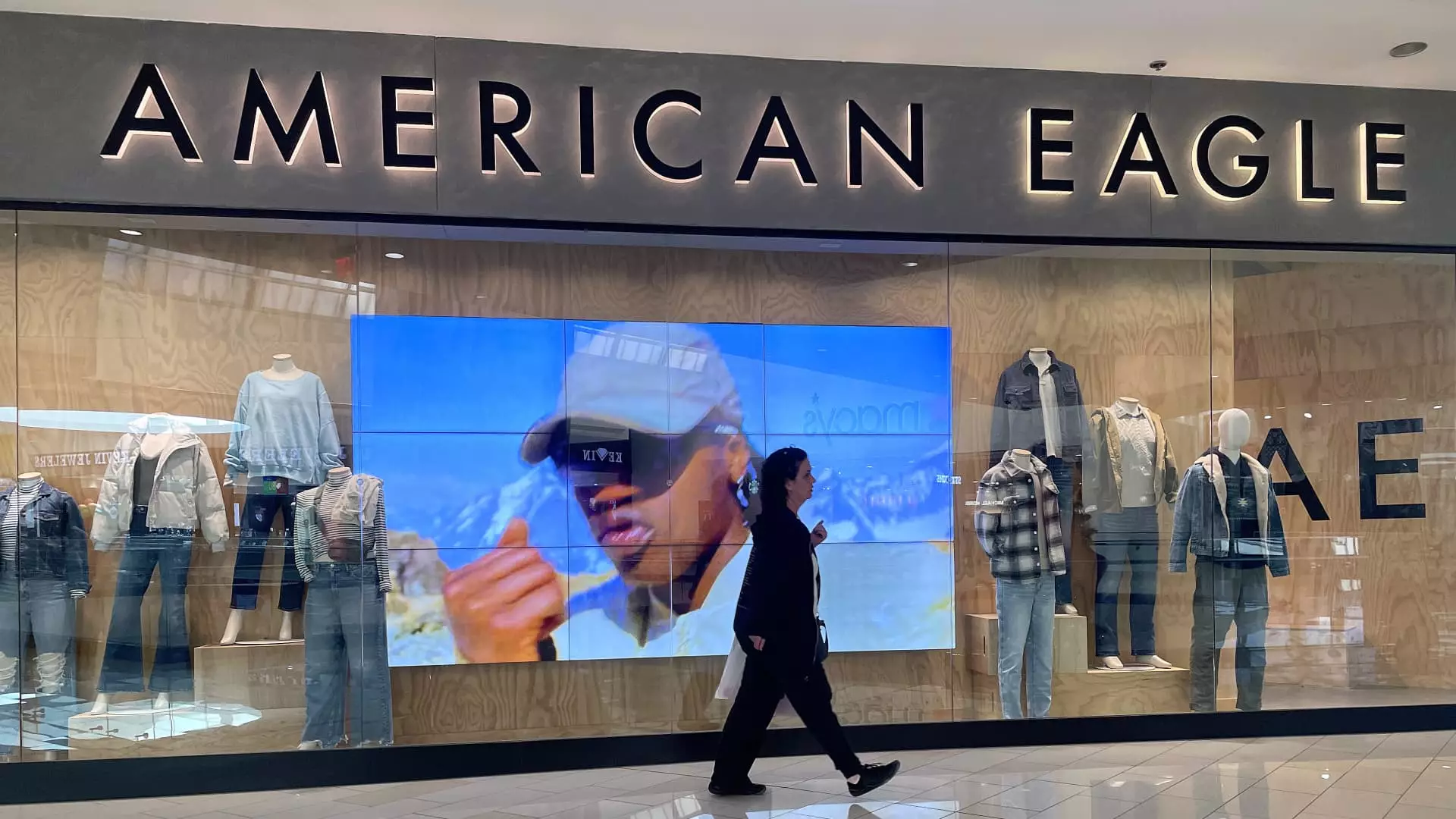American Eagle Outfitters has escalated its ongoing battle against counterfeit products by launching a lawsuit against the e-commerce titan Amazon. This legal action, which was formally filed in the U.S. District Court for the Southern District of New York, accuses Amazon of trademark infringement that allegedly misleads consumers into believing they are purchasing authentic products from American Eagle’s Aerie line. With specific claims about the unauthorized use of Aerie’s branding in search results, this lawsuit highlights critical issues surrounding trademarks, consumer deception, and the broader implications for brands selling online.
The core of American Eagle’s complaint involves assertions that Amazon has exploited its branding for the Aerie and Offline by Aerie lines, particularly in search results that direct consumers toward “inferior quality knock-offs.” According to the lawsuit, when consumers enter searches for Aerie products on Google, they are flooded with links to Amazon’s site that lead to listings of unauthorized and substandard replicas. American Eagle emphasizes the unauthorized nature of Amazon’s use, clarifying that no permission was granted for these listings. Furthermore, the company has intentionally chosen to restrict distribution of Aerie products on platforms like Amazon, preferring to develop a distinct brand identity and unique customer experience.
American Eagle argues that the deceptive marketing tactics employed by Amazon create a confusing shopping period for consumers. When potential buyers arrive at Amazon, believing they are engaging with official Aerie products, they instead encounter sham products that do not meet the standards of the original line. By employing automated keyword algorithms, Amazon allegedly capitalizes on search terms, leading shoppers to erroneously equate their offerings with authentic Aerie merchandise. Such practices not only undermine customer trust but also threaten the integrity of American Eagle’s brand.
American Eagle’s lawsuit isn’t isolated; it surfaces amidst a growing trend of brands voicing concerns over counterfeit products proliferating on online marketplaces. The case joins others where established brands, including Birkenstock and Daimler AG, have fought similar battles against Amazon. These instances raise alarming questions about the accountability of large e-commerce platforms in regulating third-party sellers who may indulge in the sale of counterfeit goods. Amazon has experienced heightened scrutiny regarding these issues, and with the vast expanse of its marketplace, such challenges are particularly intricate.
Despite American Eagle’s accusations, Amazon has publicly asserted its stance against counterfeits, emphasizing their policies designed to eliminate such items from their platform. The e-commerce leader claims to have implemented heightened initiatives to monitor, police, and mitigate the effects of counterfeits on their site. Steps include the establishment of specialized teams dedicated to pursuing legal actions against offenders and developing protective tools for brands. Nevertheless, these proactive measures appear insufficient in the eyes of companies like American Eagle, who continue to face substantial concerns about how their trademarks are utilized by third-party vendors.
American Eagle is not merely seeking to highlight unethical practices; it aims to restore integrity to its brand and protect its loyal customer base. The lawsuit requests both injunctive relief—aimed at prohibiting Amazon from continuing these practices—and financial compensation for damages incurred from Amazon’s alleged trademark infringement. This dual-faceted approach underscores a determined effort to safeguard the unique identity of the Aerie brand while also addressing the broader risks posed by counterfeit merchandise.
The lawsuit filed by American Eagle against Amazon serves as a litmus test for the dynamic and oft-controversial relationship between brick-and-mortar companies and online retail giants. It underscores the importance of trademark protection in an age where consumer trust is paramount. In a world increasingly driven by e-commerce, the outcome of this dispute may influence the future landscape of online shopping for both consumers and brands alike. As this case unfolds, it is evident that the ramifications will stretch far beyond just American Eagle and Amazon, potentially reshaping how online platforms handle brand integrity and consumer protection.


Leave a Reply